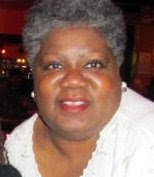All About Us
"Who believes what we've heard and seen? Who would have thought God's saving power would look like this? We looked down on him, thought he was scum. But the fact is, it was our pains he carried— our disfigurements, all the things wrong with us. We thought he brought it on himself, that God was punishing him for his own failures. But it was our sins that did that to him, that ripped and tore and crushed him—our sins! He took the punishment, and that made us whole. Through his bruises we get healed. We're all like sheep who've wandered off and gotten lost. We've all done our own thing, gone our own way. And God has piled all our sins, everything we've done wrong, on him, on him. He was beaten, he was tortured, but he didn't say a word. Like a lamb taken to be slaughtered and like a sheep being sheared, he took it all in silence. Justice miscarried, and he was led off— and did anyone really know what was happening? He died without a thought for his own welfare, beaten bloody for the sins of my people. They buried him with the wicked, threw him in a grave with a rich man, Even though he'd never hurt a soul or said one word that wasn't true. Still, it's what God had in mind all along, to crush him with pain. The plan was that he give himself as an offering for sin so that he'd see life come from it—life, life, and more life. And God's plan will deeply prosper through him."
~ Isaiah 53:3-10, Message Bible
We have a saying "it's not about you!" that we invoke when we feel a person is being too domineering or too self-centered. We say this in a desire to take the focus off of them and refocus their attention to the needs and concerns of the broader group. However, on this day, it really is all about us.
- It's about Deity coming to earth, living among us, and teaching us to live up to our lost birthright.
- It's about Deity taking on our "stuff", bearing our blame and shame, so we could reclaim the sense of divinity we lost.
- It's about an Innocent being beaten while the guilty cry for His slaughter. It's about His wounds and ripped flesh, His brokenness, being the purveyor of our wholeness.
- It's about shedding untainted blood as a sacrifice on a cross-shaped wooden altar so that our tainted blood could be spiritually transfused and our royal divinity restored.
Whether we believe or not is immaterial. The Record does not/cannot lie. His death was all about us. He paid a debt He did not owe because we owed a debt we could not pay. He laid Himself down on the altar as the innocent sinless Lamb of God. For our stuff, they hung Him high and stretched Him wide. On the cross we horrified, they lifted Him up and God was glorified. God's plan was deeply prospered through Him. All who were drawn were transformed before their eyes. It was all for us that Jesus died. It was All About Us that the God-Man was crucified.
On this Good Friday, I bid you Selah.
